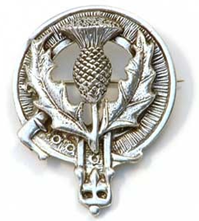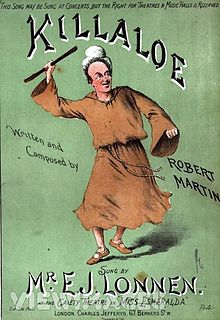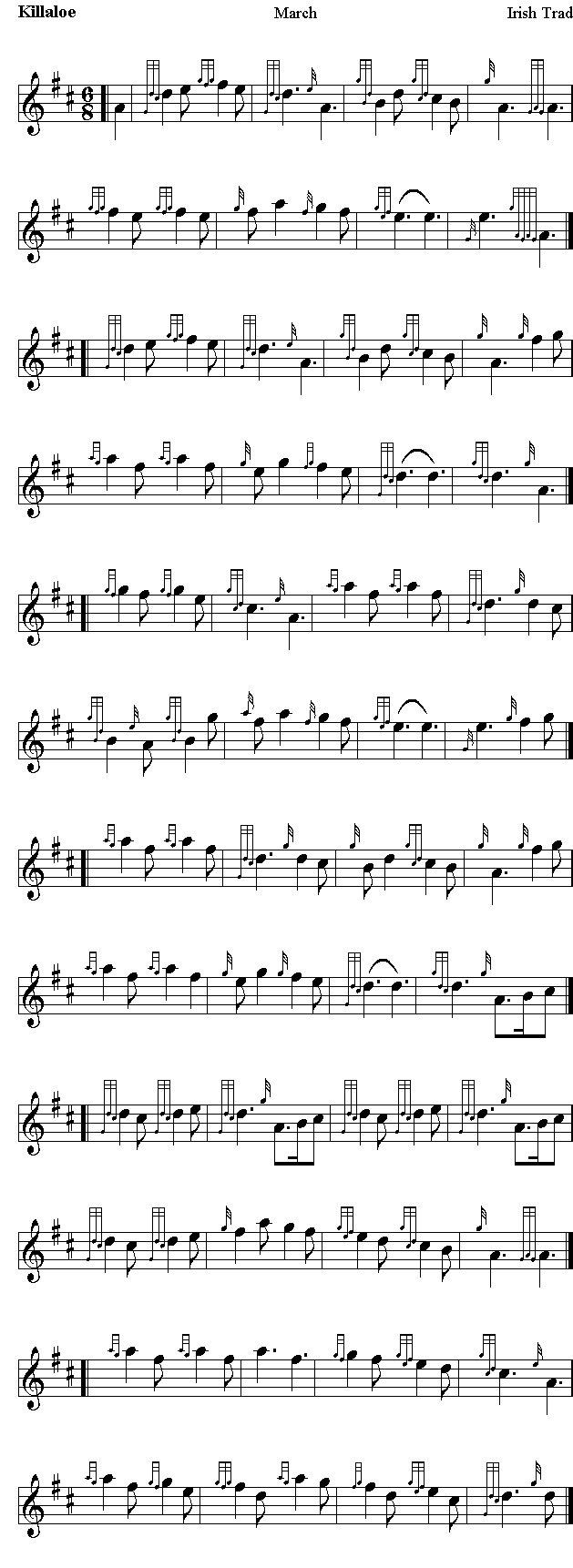Robert Martin was the elder brother of Violet Martin, more famous as “Martin Ross” of the literary cousins “Somerville & Ross”, who wrote “Memories of an Irish R.M.” and other stories. Bob Martin gained his nickname from his even more famous hit of the time “Ballyhooly March”. As a Galway estate landowner he was related through his bohemian cousin Willie Wills, the famous Victorian court artist and composer, to General John Doyle, who founded the 87th, later the Royal Irish Fusiliers. Martin was so impoverished by the Land League rent strikes that he moved to London and turned to journalism, burlesque song writing and politics. He worked for the Sporting Chronicle, nicknamed “The Pink’un”, on account of the color of the paper, a Victorian version of “Private Eye” crossed with “News of the World”.
He was also a member of the Pelican Club, a notorious group of aristocracy, gentry, sportsmen, army officers, sporting journalists and other colorful characters who believed in living life to the full, usually well beyond their means, and who held court at Romano’s restaurant in the Strand, near the Gaiety Theatre. A significant number of the aristocracy scandalized Victorian society by marrying “Gaiety Girls” who provided the glamour in the burlesque productions, hence the nickname “The actressocracy” for these socially climbing girls. PG Wodehouse took many of the exploits of this Victorian social group, he was a young reporter at the time, and subsequently reset them very successfully in the 1920s and 30s, around the exploits of Bertie Wooster and his butler Jeeves.
Martin was politically active as a boycotted landowner, staunch unionist, political activist, an “Emergency man” and a close associate of Arthur Balfour, first Secretary for Ireland and later Prime Minister. His virulent Anti Home Rule views are reflected in his songs, which consistently depict the Irish as drunken, brawling if loveable rogues who were clearly unfit to govern themselves! Martin wrote about thirty songs for various burlesque productions, including “Murphy of the Irish Fusiliers”, although a copy of this has yet to surface!
The lyrics of Killaloe relate the sorry story of a French teacher attempting to make himself understood to a difficult Killaloe class who, totally misunderstand his French, and as a consequence beat him up. The Killaloe song, with original melody in 2/4 time, was probably made well known in military circles by a younger brother, Lt. Charles Fox Martin, who served with the 88th Connaught Rangers (The Devil's Own) from 1888 until his death in India in 1893. He is credited with composing a new set of lyrics, in 6/8 time, celebrating his Regiment's fame, and although no mention is made of the tune in the Regimental history, there is an interesting explanation which may well account for the shout or yell in the military version of “Killaloe”.
The march became popular among the other Irish Regiments and various other sets of lyrics were devised, some none too complimentary in tone.
Again in 1944, the BBC recorded the 1st. Battalion, Royal Inniskilling Fusiliers Pipes & Drums playing “Killaloe”, by then adopted unofficially as the march of the famous 38th (Irish) Brigade, during the approach to Cassino.
Killaloe was adopted by The Royal Irish Rangers on its formation on July 1st, 1968 and again later by the Royal Irish Regiment on its formation in 1992.
The Killaloe song, with original melody in 2/4 time, was made well known in military circles by Robert Martin's younger brother a Lt. Charles Fox Martin, who served with the 88th Connaught Rangers (The Devil's Own) from 1888 until his death in 1893. He composed a new set of lyrics, in 6/8 time, celebrating his Regiment's fame, and although no mention is made of the tune in the Regimental history, there is an interesting explanation which may well account for the shout or yell in the military version of Killaloe. In the 1st Battalion (Connaught Rangers), formerly the 88th, a favorite march tune was "Brian Boru" and this was played generally when the Battalion was marching through a town, or when after a hot and heavy march, the Battalion was feeling the strain and the Commanding Officer wished to revive the spirits of the men. On such occasions, at a time generally given by the Sergeant-Major, all ranks would give a regular "Connaught Yell". During which the Band would make a pause, and then continue playing.



